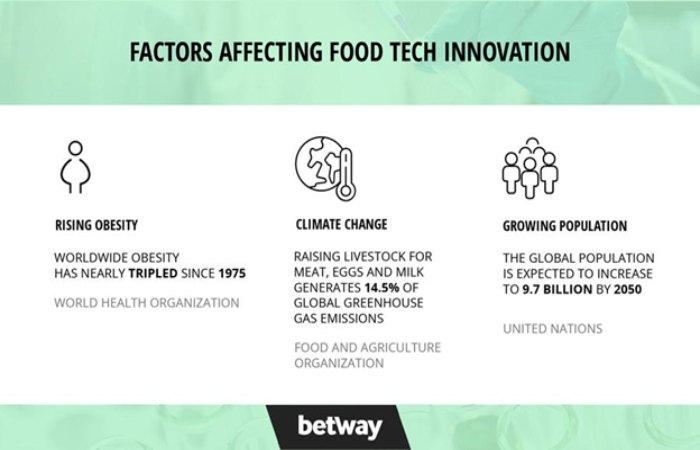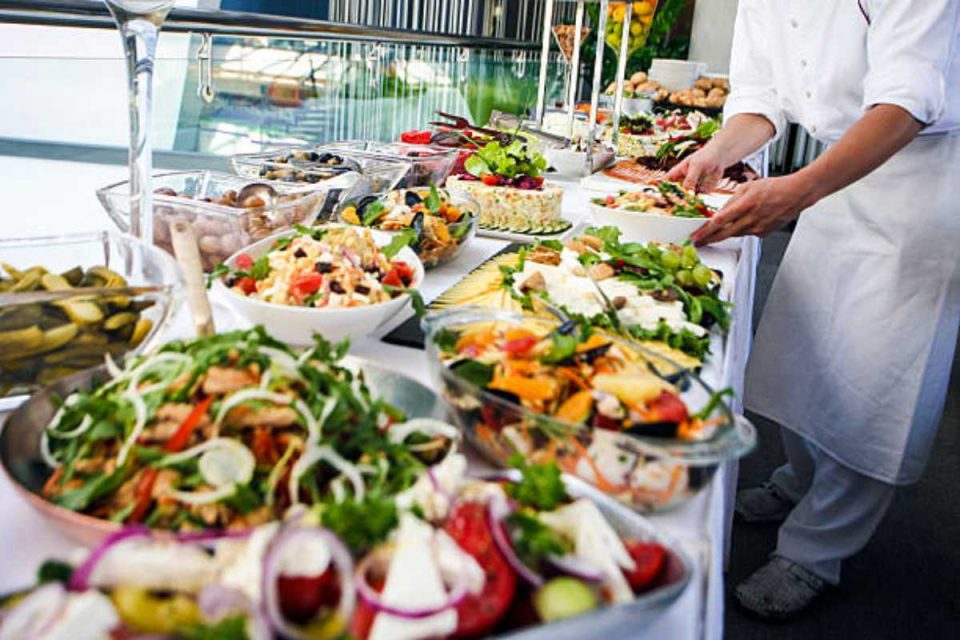It’s fair to say that the food industry is currently in flux. Traditionally, people in the West have consumed meat and dairy as fundamental parts of their diet, but now, that situation looks like it might be changing. With an increasing number of people declaring themselves to be vegan or “flexitarian”, the food industry is going to have to make some big changes if it wants to keep up with the changing mores of society. Here are 10 predictions we have for the food industry in the future.
Table of Contents
1. Plant-based is the future
This prediction doesn’t take too much of a stretch to imagine. Plant-based diets and foods are skyrocketing in popularity, and although meat and traditional dairy aren’t exactly lagging behind, there’s certainly a movement away from them and towards healthier alternatives. It’s pretty obvious that the food industry will move further towards this paradigm and away from meat and dairy, leading to a more sustainable food economy.
2. Healthier foods will win out
Earlier this year, the UK announced that it would ban junk food ads on TV until 9pm from the year 2023. In the US, scientists conducted a study that showed exactly how food ads influence our psychology, and why they shouldn’t be allowed to do so without extensive regulation. With rising obesity and an increasing world population, healthy eating – and the tech to achieve it – is more important than ever. The good people at Betway casino agree, which is why they’ve conducted research and come up with this infographic to demonstrate the issue.

Credit: Betway Insider
3. Convenience will also win out
Consumers want convenience; it’s one of the golden rules of commerce. As a business, you should provide solutions or products that make your customers’ lives easier in some way. The food industry is no exception; although healthy eating will, of course, prove critical, the industry will also look for ways to package healthy meals in a convenient way, so consumers can eat them on the go. Most consumers won’t make decisions based on health if they’re inconvenient.
4. Ingredient services will soar
Platforms like HelloFresh or Blue Apron will continue to grow in the future. This is because they represent a great intersection between convenience and health. Customers will want to cook healthy meals for themselves, but won’t want to go to the trouble of sourcing ingredients and making sure the meals are cooked to the right specifications. This is where these services come in; they’ll continue helping us eat more healthily.
5. Nutrition will become more important
In a COVID-19 world, everyone is looking to the food they consume for a source of nutrition to help them combat the disease. Nutrition labels on food often conceal some pretty devastating information; while food may often seem low in calories, that doesn’t mean it’s healthy. These labels will need to display their information far more prominently in the future so as to avoid misconceptions by consumers who don’t realise calories aren’t everything.
6. Automation will be huge
Automation is the next emerging trend that will define industry in the coming years. This will also be true in the food and catering industries; where wait staff, delivery drivers, or even kitchen staff can’t be found, automation will take the place of humans, delivering products where necessary. This will also be true of the farming sector and many other food-adjacent industries, and it’s why conversations surrounding a universal basic income are happening in so many places.
7. Lab-grown food is coming
Your food is going to be grown in a lab sooner than you think. Scientists are already making great strides when it comes to lab-grown meat and dairy, and although the technology isn’t quite ready for the mainstream yet, it’s only a matter of time before it is. When scientists can perfect the taste and texture of your favourite foods without any animals ever needing to be involved, there will almost certainly be no reason not to be vegan anymore.
8. Upcycling will take centre stage
Are you familiar with the concept of upcycling? If not, here’s a quick primer. Upcycling essentially involves taking materials – usually byproducts of manufacturing or waste materials – and transforming them into something superior to what they originally were. This will be an incredibly important concept in the food world; if producers can take waste products or byproducts and turn them into food, then there’s a potential revolution brewing.
9. Packaging will become more sustainable
There are many companies looking into making their food packaging more sustainable right now, but that trend is only set to increase in popularity and relevance. There’s a huge discussion right now around plastic pollution and the negative effects it’s having on the environment, so expect more and more companies to give up on plastic and try to find other, better ways of packaging their products. We now also have biodegradable plastics, which could enter the conversation soon.
10. Indie restaurants will be huge
Chain restaurants are popular, and they will always continue to be popular. However, with conversations surrounding how big restaurants source and use their ingredients, independent restaurants – which often find it much easier to provide this information – will become even more important than they already are. Major restaurant chains may not shut down, but you’ll start seeing more and more local cuisine options spring up, providing better community alternatives to big business spending.

